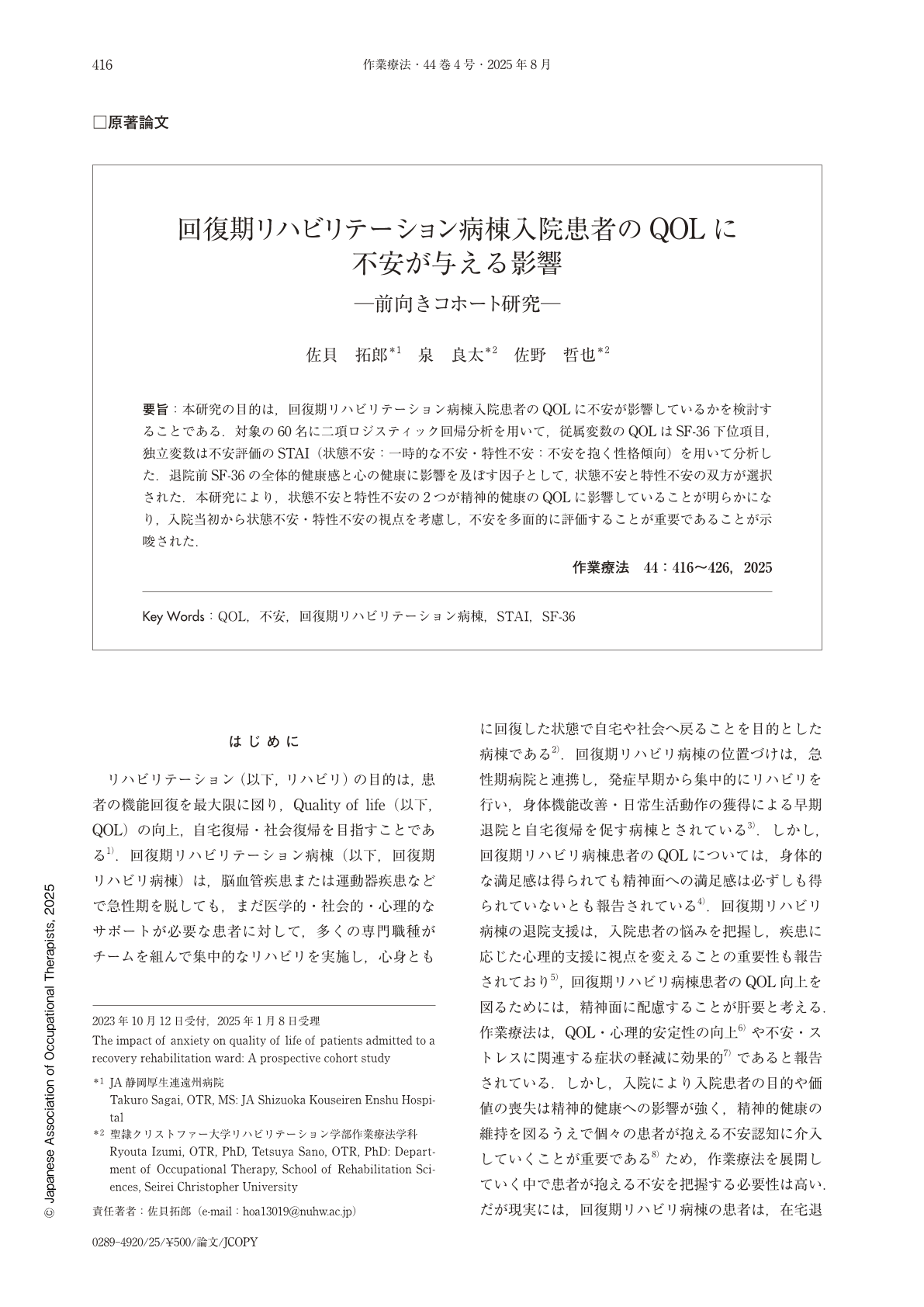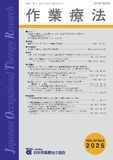Japanese
English
- 販売していません
- Abstract 文献概要
- 1ページ目 Look Inside
- 参考文献 Reference
要旨:本研究の目的は,回復期リハビリテーション病棟入院患者のQOLに不安が影響しているかを検討することである.対象の60名に二項ロジスティック回帰分析を用いて,従属変数のQOLはSF-36下位項目,独立変数は不安評価のSTAI(状態不安:一時的な不安・特性不安:不安を抱く性格傾向)を用いて分析した.退院前SF-36の全体的健康感と心の健康に影響を及ぼす因子として,状態不安と特性不安の双方が選択された.本研究により,状態不安と特性不安の2つが精神的健康のQOLに影響していることが明らかになり,入院当初から状態不安・特性不安の視点を考慮し,不安を多面的に評価することが重要であることが示唆された.
The purpose of this study was to investigate whether anxiety affects the quality of life (QOL) of patients admitted to recovery rehabilitation wards. Using a binary logistic regression analysis on a sample of 60 subjects, the dependent variable QOL was measured using the MOS Short-Form 36-Item Health (SF-36) subscales, and the independent variable anxiety was assessed using the State-Trait Anxiety Inventory (STAI)(state anxiety: temporary anxiety; trait anxiety; and tendency to be anxious). Both state anxiety and trait anxiety were identified as factors influencing the overall health perception and mental health of the SF-36 before discharge. This study reveals that state anxiety and trait anxiety impact the mental health of QOL, suggesting that it is crucial to consider state and trait anxiety perspectives from the initial stage of hospitalization and to comprehensively evaluate anxiety.

Copyright © 2025, Japanese Association of Occupational Therapists. All rights reserved.


